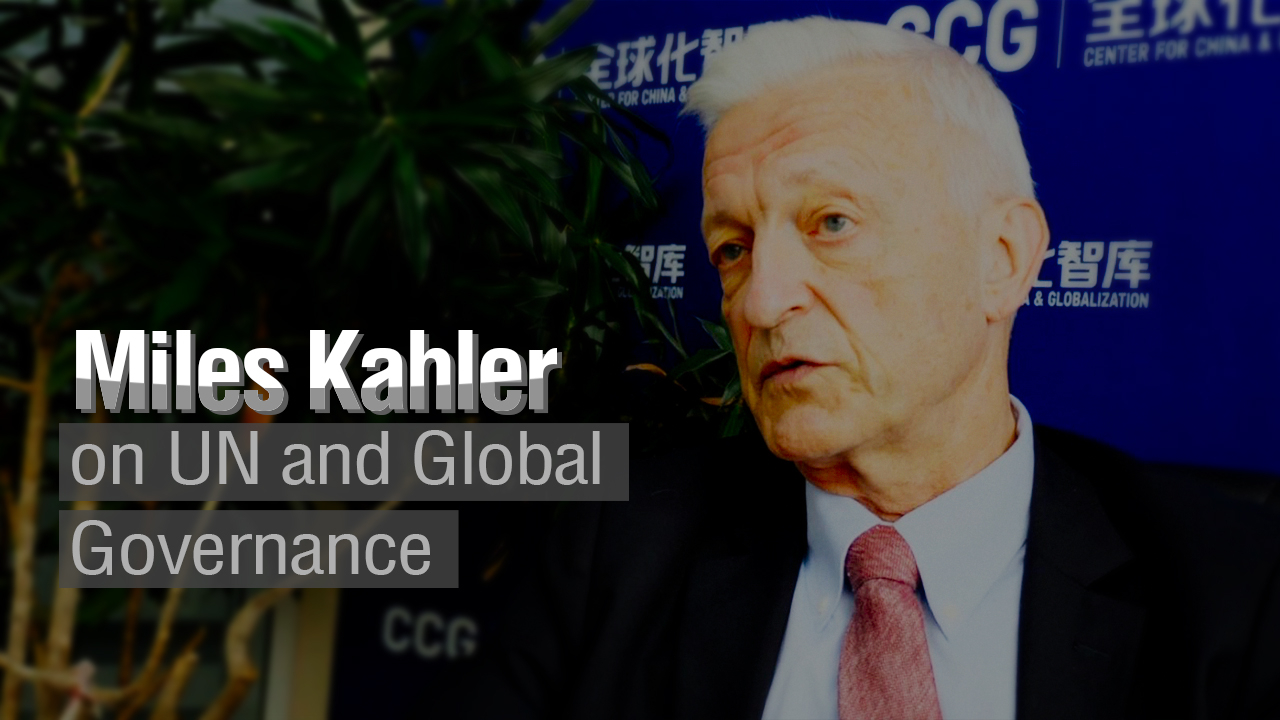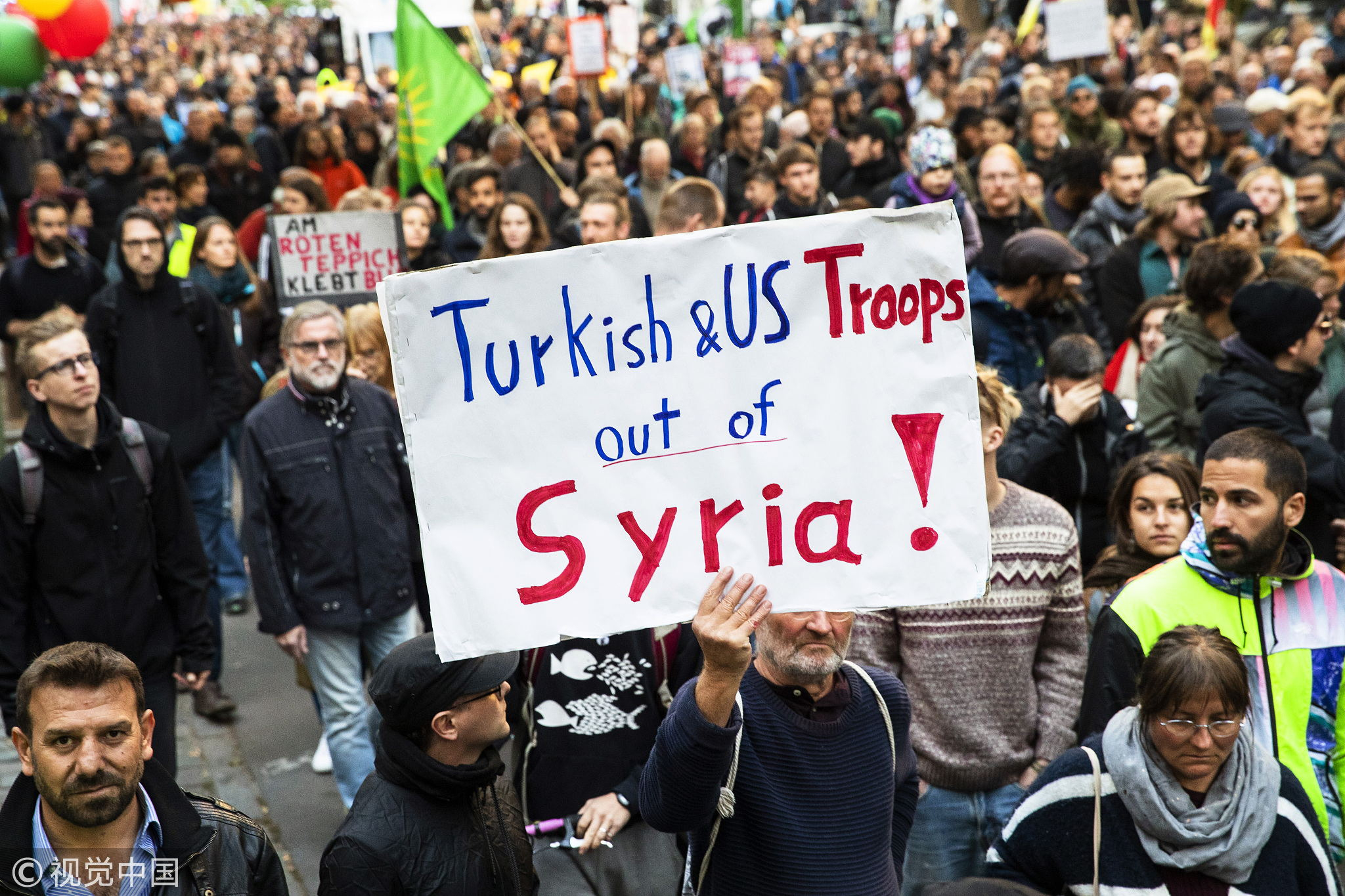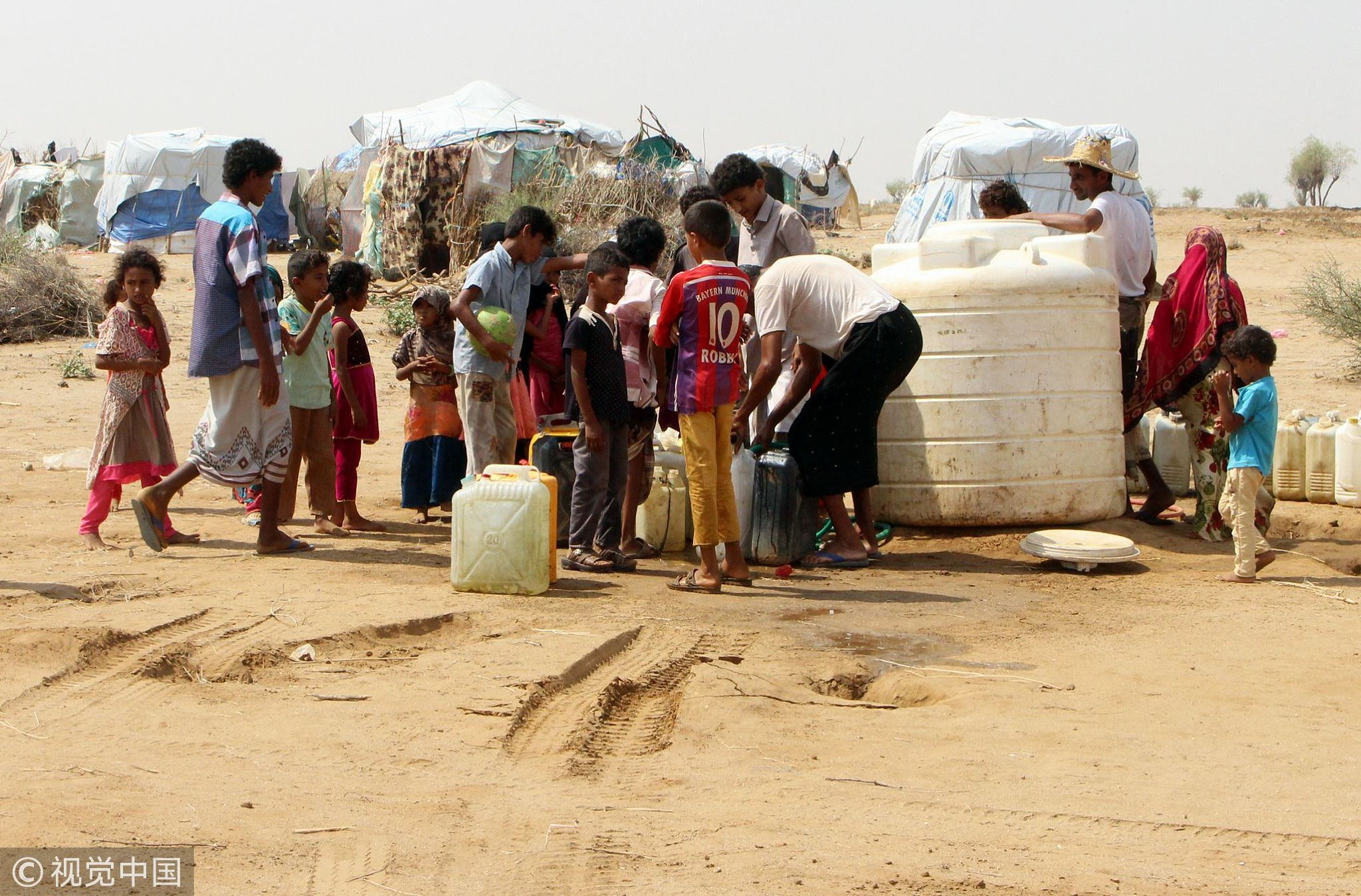03:09

It's been a week of glamorous ceremonies, unglamorous wrangles, shameless bragging, muted applauses, and sincere vows at the United Nations (UN) headquarters in Manhattan. Under the spotlight, statesmen, activists and celebrities from different continents gathered at the 73rd UN General Assembly and debated on the fate of the world.
It's true that the world is mired in a multitude of plights -- the turbulence in the
Middle East,
Donald Trump's withdrawal doctrine, ascending populism in parts of Europe, an intensified
anti-globalization trend, to name a few.
The UN has long been scolded for allowing these predicaments to unfold, which have contributed to a paralysis of global governance. Myriad media outlets and international affairs watchers apply rhetoric like "costly," "useless," and even "undemocratic" to scorn the 76-year-old global machine.
So should the UN really play the role of the world's police-in-chief? Are its founding objectives still relevant today? What's its significance in global governance? Are there alternatives?
CGTN's Wang Xiaonan talked to Miles Kahler (
Kahler), senior fellow at the
Council on Foreign Relations and distinguished professor at the School of International Service of American University, to delve into these questions.

Exterior view of Central Hall, Westminster, London, during the first UNGA on January 10, 1946, where the 51 founding nations of the organization met for the first session. /VCG Photo
Exterior view of Central Hall, Westminster, London, during the first UNGA on January 10, 1946, where the 51 founding nations of the organization met for the first session. /VCG Photo
CGTN: In another session of the UNGA, the UN is once again criticized as being "useless" and "an old bureaucracy," especially given the uncertainty of many regions in the world and the unilateralism pushed by US President Donald Trump. Has the UN lost its prerogative as a global governance organization?
Kahler: First of all, the UN does many, many things every day that don't get into media. It has peacekeeping operations around the world; it contributes to development; it has many agencies that do many positive things daily without anyone noticing that. That's very important to note. You're pointing to big diplomatic, military issues.
Even when the UN was founded, the structure of the UN is such that if the great powers on the
Security Council agree, then things can happen. If they disagree, as they have recently on issues like Syria, then not much is going to happen.
That's always been the case. During the
Cold War, when the Soviet Union and the United States disagreed on almost all issues, much of the UN's work was stalemated. It didn't work very well at all. Since the end of the Cold War -- since the 1990s -- the UN has been much more effective in issues such as peacekeeping, and it still is.
But on some major issues where the US doesn't agree with Russia or China, on cases like Ukraine or
Syria, then the UN cannot operate very effectively. But that's always the case. That's the way it's designed. So the permanent members of the Security Council -- China, the US, Russia, Britain, France -- essentially have to agree. They all have a veto. If they don't agree, then not much is going to happen on these major issues, which are very difficult issues.

A man holds a banner reading 'Turkish and US troops out of Syria' during a demonstration 'Erdogan not welcome' to protest against the visit of Turkish President Recep Tayyip Erdogan in Berlin, Germany, on September 28, 2018. /VCG Photo
A man holds a banner reading 'Turkish and US troops out of Syria' during a demonstration 'Erdogan not welcome' to protest against the visit of Turkish President Recep Tayyip Erdogan in Berlin, Germany, on September 28, 2018. /VCG Photo
CGTN: John Weiss, a professor at the University of Cornell, argues that the UN still has the power to get things done through "good old diplomacy." Do you agree? Is "old diplomacy" still applicable to the modern world?
Kahler: Diplomacy, for the last century at least, has involved many more actors than just diplomats. In every country, there are NGOs, communities, and ethnic communities that may be interested in these issues. So diplomacy has been much more democratized, pluralized. There are more actors involved.
In that sense, it's not "old good diplomacy" anymore -- it can still be very valuable -- but there are many other actors that have an interest in many of these issues and they have to be taken into account.
CGTN: Do you think the current world order needs a reordering?
Kahler: The world order is always being reordered in some sense, I mean, it's always being reformed and changed. It's not only emerging powers like China, Brazil, and India that are asking for reforms. In many cases, it's the US, Europe and other established powers that want changes as well. The Trump administration is exactly a case in point -- the US is asking for changes of various kinds. The question is how you get that reordering in a way that's seen as legitimate and peaceful by all parties concerned.
Yes, the order always has to be reexamined, and changed in some respect, because the world is changing. There are new actors, there are some actors that are becoming more powerful, there are new ideas, new technologies. Things are changing, so the order has to change with it. The question is how it will change legitimately and consensually and peacefully.
CGTN: What role can the UN play in this reordering process?
Kahler: In some sense, the UN is the pinnacle for security issues in many respects. There isn't another global organization that plays such a prominent role in security issues. In economic issues, I think the UN is not so prominent. Other organizations like the International Monetary Fund, the World Bank and the World Trade Organization play a much more prominent role.
But the UN, in some sense, is a site where all countries can come together and have some voice in the broad outlines of global governance. And the UN can also in some ways initiate or promote action in certain areas as it has done in arms control and climate change. But it may not play a central role in the negotiations -- it may give the role to other parties or organizations.

Displaced Yemenis from Hodeida fill their water barrels at a make-shift camp in a village in the northern district of Abs in Hajjah province, September 16, 2018. The United Nations is working to open a humanitarian air bridge to take Yemeni cancer patients for treatment at qualified facilities. /VCG Photo
Displaced Yemenis from Hodeida fill their water barrels at a make-shift camp in a village in the northern district of Abs in Hajjah province, September 16, 2018. The United Nations is working to open a humanitarian air bridge to take Yemeni cancer patients for treatment at qualified facilities. /VCG Photo
CGTN: I saw you once wrote about alternative modes of global governance. Can you explain them?
Kahler: If you look at an area like global health, for example, we have the World Health Organization (WHO) which has played a role in fighting Ebola, and the SARS epidemic some time ago which affected China. But the WHO is a very small part of global health. The Gates Foundation – perhaps the largest private foundation in the world founded by Bill and Melinda Gates – has funding which rivals that of the WHO and they have concentrated on global health. So you have a private foundation, you have many non-governmental organizations involved in global health.
When I talked about new modes of governance, it used to be inter-governmental organizations like the WHO or the UN. But now governance means a multiplicity of actors, many different actors of different types who are involved. Sometimes it could be states. California in the US, for example, plays a big role in climate change, and in China, provinces have played a role in climate change. So it's a much more complicated set of procedures; there are many more actors involved.
But that doesn't mean that national governments are not important. They are still important, and so are intergovernmental organizations, but there are many other processes and actors that are now involved in many of these issues -- global health, climate, peacebuilding, cyber -- many of these new issues on the agenda are this new sort of governance.
Videographer: Li Yunlong
Video editors: Liu Lian, Li Ningning
(If you want to contribute and have specific expertise, please contact us at opinions@cgtn.com.)





